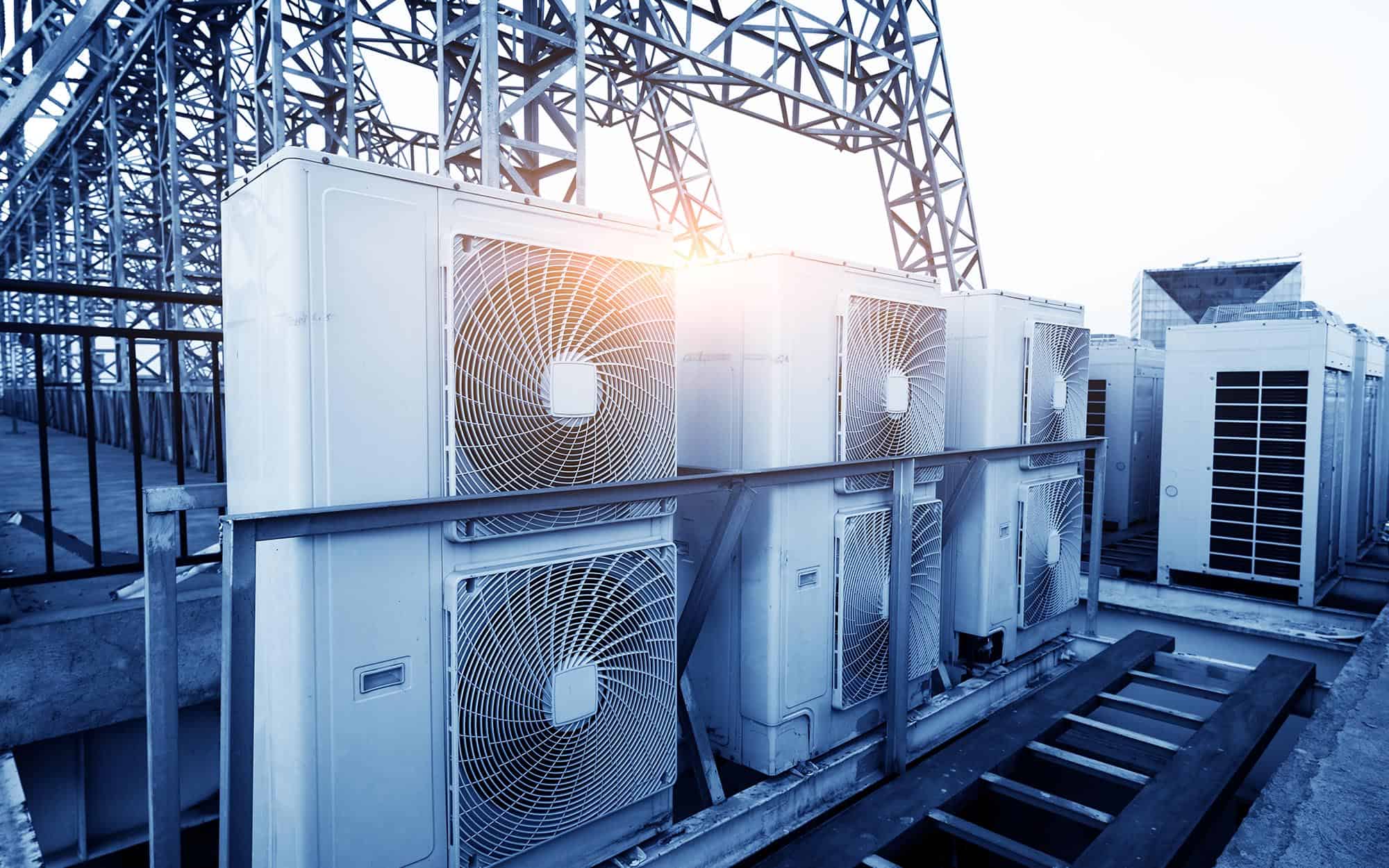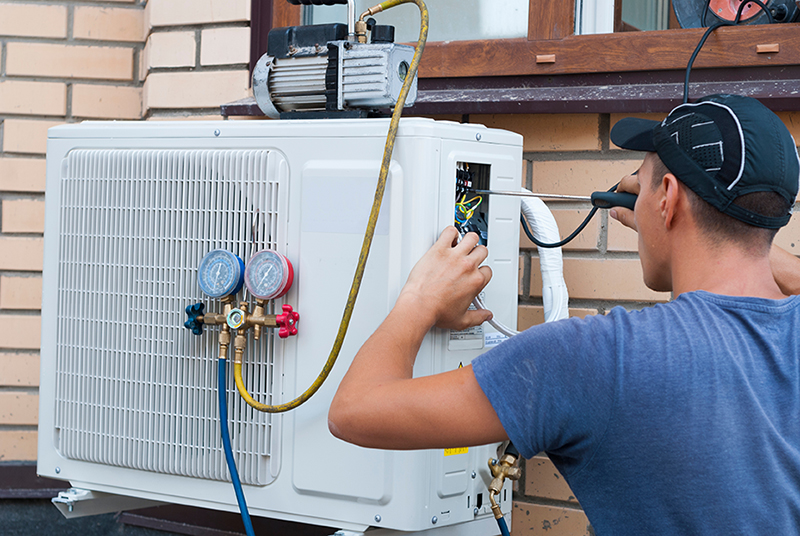Expert Boiler Repair Services To Ensure Your System Functioning Properly
Expert Boiler Repair Services To Ensure Your System Functioning Properly
Blog Article
Your Overview to Selecting the Right HVAC System for Your Requirements
Picking a proper A/c system is a vital decision that can significantly influence comfort and energy performance in your home. Furthermore, understanding the various kinds of systems offered and their power scores can help lead your selection.
Comprehending HVAC System Kind
When selecting a HVAC system, it is important to recognize the various kinds offered to fulfill your certain needs. The main categories of cooling and heating systems include main air conditioning systems, ductless mini-split systems, warm pumps, and heater systems.
Central air systems are designed to cool numerous spaces making use of ductwork to distribute conditioned air. They are excellent for larger homes calling for consistent temperature level control. Ductless mini-split systems, on the other hand, offer adaptability and effectiveness, as they permit zoning abilities, making it possible for individual space temperature level policy without the demand for ductwork.
Warm pumps operate by moving warm instead than creating it, making them an energy-efficient alternative for both home heating and cooling. Conversely, furnace systems utilize combustion to create warm, using either oil, gas, or power.
Each system has distinct advantages and considerations, including installation needs, upkeep, and total expenses. Comprehending these types will help homeowners make informed decisions based upon their specific needs, climate, and budget restraints, ultimately guaranteeing optimum comfort and performance.
Assessing Power Performance
Energy effectiveness is a crucial variable in the selection of a Cooling and heating system, as it directly influences both utility expenses and ecological sustainability. The Seasonal Energy Performance Ratio (SEER) and the Heating Seasonal Efficiency Factor (HSPF) are crucial indications for air conditioning systems, representing their effectiveness over a regular cooling and heating period, respectively.
Furthermore, seek systems that have made the power celebrity label. This accreditation indicates that the equipment satisfies stringent power efficiency guidelines established by the united state Environmental Protection Company. Think about the system's variable-speed modern technology, which allows for a lot more reliable procedure by adjusting the output to match demand, additionally boosting energy savings.
Furthermore, appropriate insulation and air duct securing can dramatically influence the system's overall efficiency. In summary, choosing an energy-efficient a/c system not just lowers your energy bills however likewise contributes to a much more sustainable atmosphere, making it a crucial factor to consider in your purchasing process.
Assessing System Size
Selecting the appropriate size for a HVAC system is essential to guaranteeing optimal performance and efficiency. A small system might battle to keep preferred temperatures, leading to enhanced wear and tear, greater power usage, and decreased comfort. Conversely, an oversized system can bring about quick cycling, which not only causes inadequacies yet likewise affects moisture control and air top quality.
To examine the optimal sizing, it is important to conduct a load estimation, which thinks about variables such as the square video of the space, insulation levels, read what he said window dimensions, and neighborhood environment conditions - boilder repair. This computation helps determine the British Thermal Devices (BTU) needed for cooling and heating. In addition, it is important to account for particular demands, such as the variety of residents and the presence of heat-generating devices

Installation Costs and Budget
An extensive understanding of installation costs is important for services and house owners thinking about a new heating and cooling system. The overall expense of installation can differ extensively based upon a number of elements, including the kind of system, the you could check here intricacy of installment, and the place of the residential property. Usually, setup costs can vary from $3,000 to $10,000, depending upon the system's size and efficiency.
When budgeting for an a/c system, it is important to think about not just the first setup costs yet likewise any added costs that may emerge, such as ductwork alterations, electrical upgrades, or authorizations. Furthermore, it is recommended to get several quotes from certified cooling and heating specialists to guarantee affordable prices.
Homeowners must also consider the potential lasting savings connected with energy-efficient systems. While the in advance prices may be greater, energy-efficient models can bring about significant savings on energy expenses with time.

Maintenance and Longevity Considerations

Appropriate upkeep consists of routine assessments, filter substitutes, and cleaning of coils and ducts (furnace installation). Ignoring these tasks can bring about reduced efficiency, raised power prices, and early system failing. Home owners ought to likewise consider the availability of solution agreements, which frequently supply scheduled upkeep and priority service, ensuring that the system remains in peak problem
Longevity differs by system kind; as an example, properly maintained air conditioning units can last 15 to 20 years, while warmth pumps may have a life-span of 10 to 15 years. Selecting a system with a solid online reputation for integrity, in addition to buying normal upkeep, can substantially improve the system's toughness. Furthermore, selecting higher-efficiency models may bring about lasting cost savings on energy bills, stabilizing the first investment in time.
Conclusion
In final thought, picking a suitable Cooling and heating system necessitates cautious factor to consider of various aspects, consisting of system types, power performance, and size. Eventually, an educated choice will improve convenience and performance in domestic atmospheres look at this website while maximizing energy cost savings.
Picking an appropriate Heating and cooling system is an important choice that can significantly affect comfort and power performance in your home.Power performance is a crucial element in the choice of a Cooling and heating system, as it straight influences both energy costs and environmental sustainability. The Seasonal Energy Efficiency Ratio (SEER) and the Heating Seasonal Performance Element (HSPF) are important signs for air conditioning systems, representing their effectiveness over a normal air conditioning and heating season, respectively. Selecting a system with a solid online reputation for integrity, along with spending in normal upkeep, can substantially improve the system's toughness.In verdict, choosing a proper A/c system requires cautious consideration of various variables, including system types, power performance, and size.
Report this page